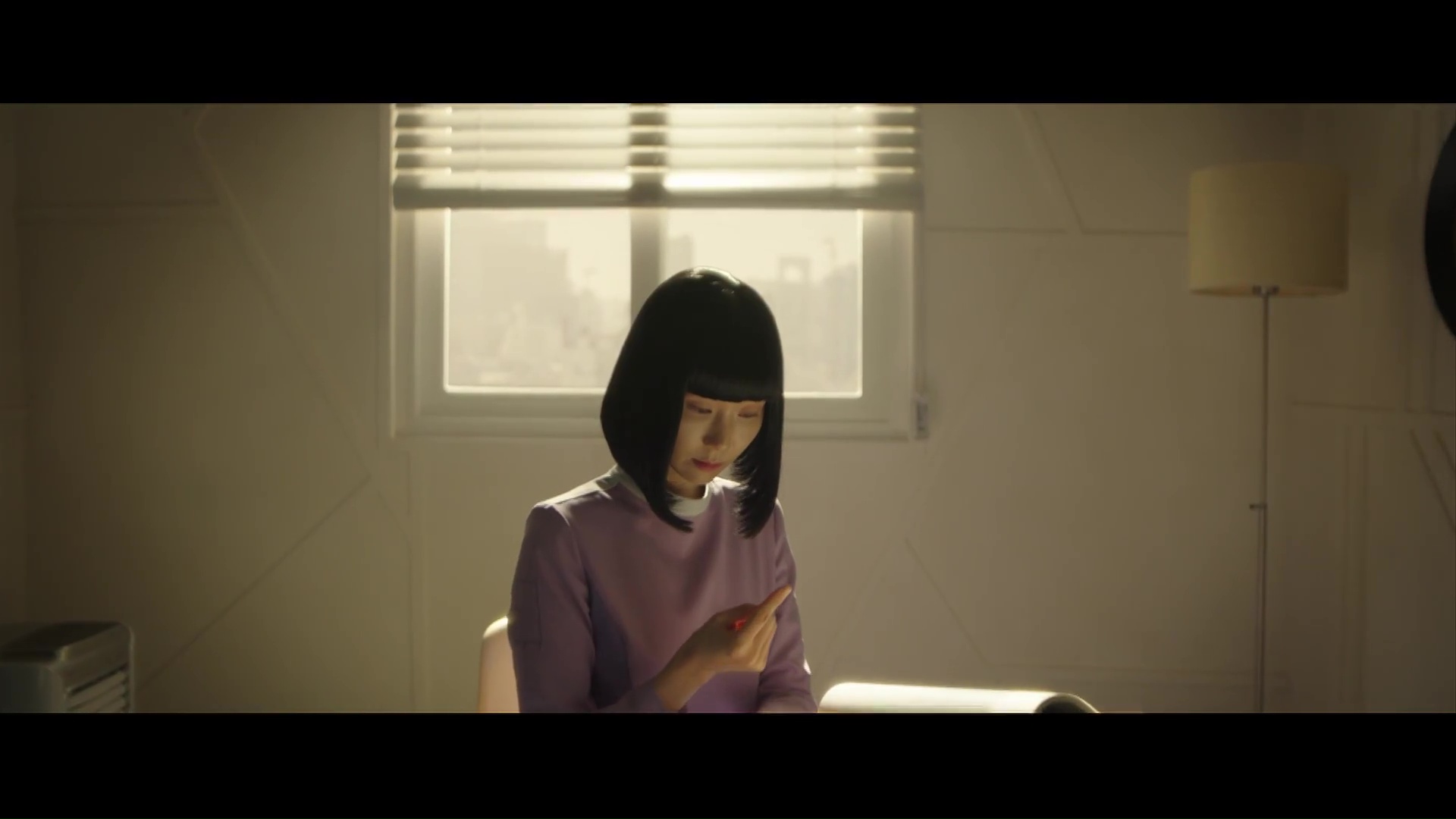The first episode in MBC’s sci-fi anthology series, SF8, is a deep and disturbing take on what quality sci-fi does best: ask us questions about what it means to be human. Set in a futuristic world of nursing robots, The Prayer digs intensely into the question of humanity, and emotions like empathy, despair, and suffering.
EPISODE 1 REVIEW: “The Prayer”
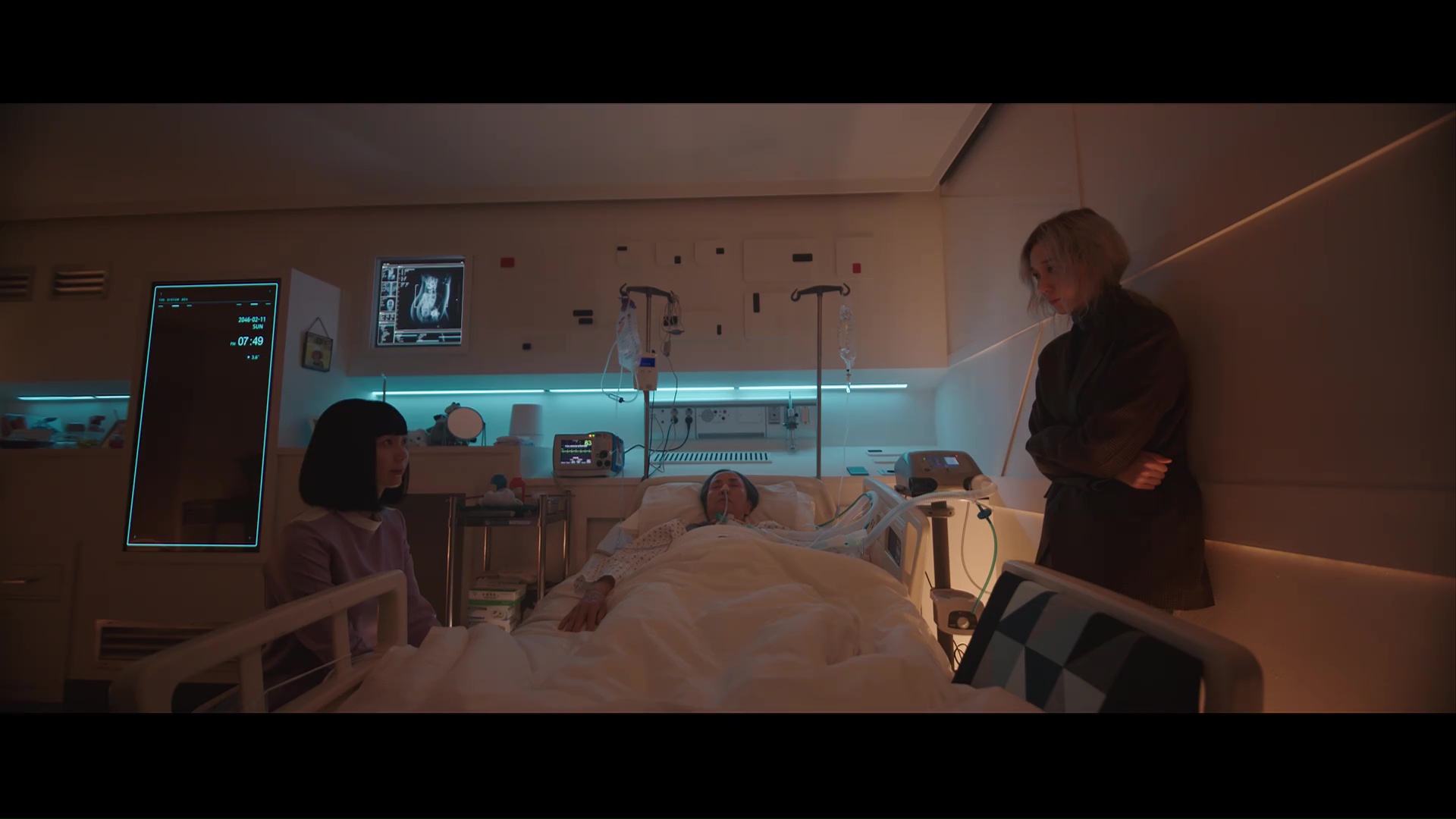
We only see the occasional sci-fi story in dramaland, and when we do, it’s usually tempered with elements that make it more like a quintessential K-drama than anything else. Not so with The Prayer. This single-episode drama is the first of eight in the SF8 series, and if it’s any indication of the dramas to come, be assured there’s nothing pat or tropey about these stories.
The Prayer opens up introducing us to the Paradise Nursing Hospital, slowly exposing us to this dystopian world of the near future where people commission caregiving robots to nurse their hospitalized loved ones. We first meet YEON JUNG-IN (Lee Yoo-young). Her mother has been in a coma for 10 years, and for most of them, she’s taken care of 24/7 by the advanced nursing robot known as GAN HO-JOONG (also played by Lee Yoo-young). These nursing robots are made in the image of the family member that purchased them, so Ho-joong looks just like Jung-in, but with her nursing outfit and cute robot bob.
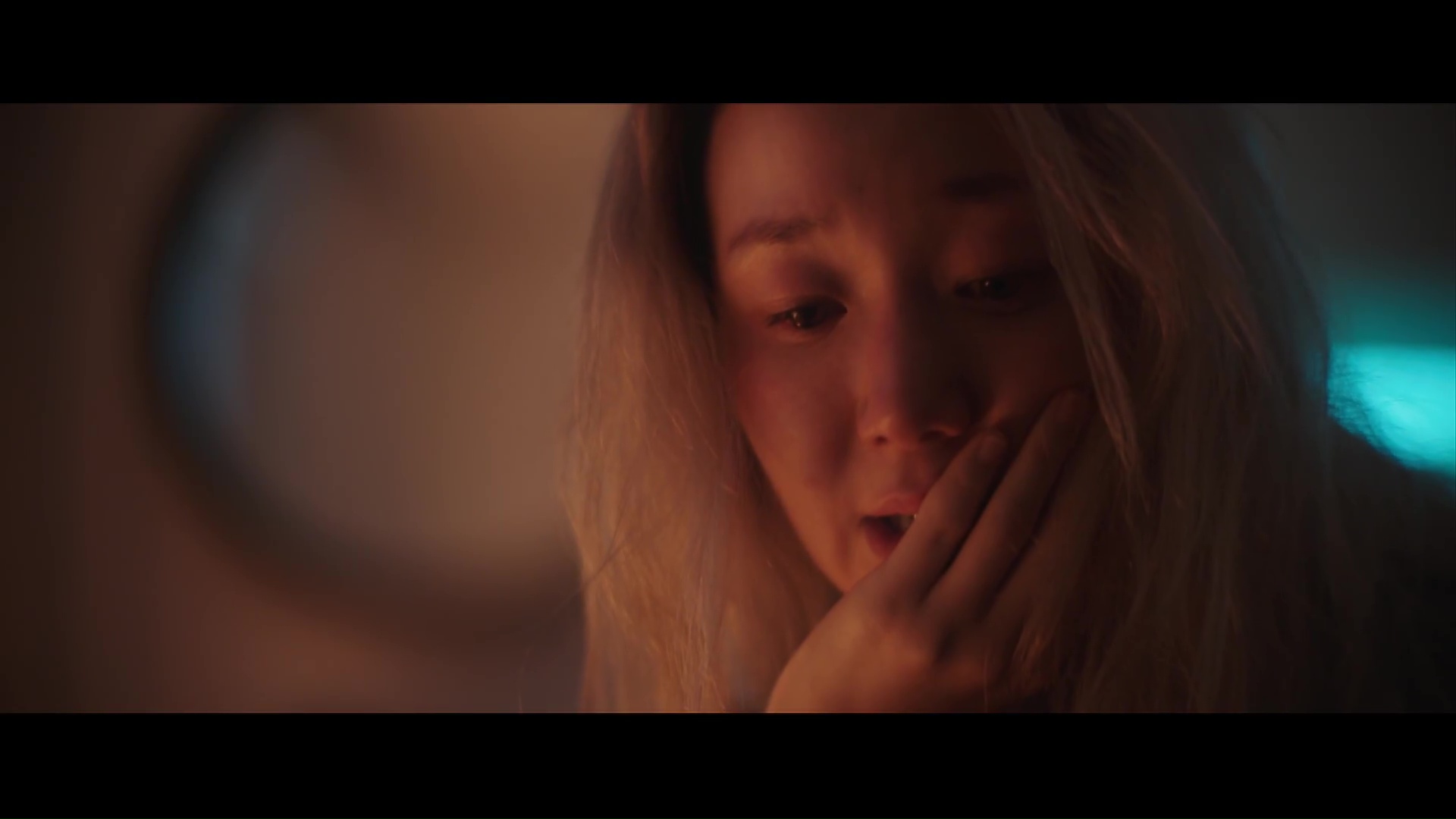
In a few passing scenes, we learn of the mental, emotional, and financial pressure Jung-in is under. Her printing business (painted as something esoteric and remote in her futuristic world) is failing, and we’re led to believe that purchasing a robot is extraordinarily expensive. On top of that, Jung-in has the daily agony of seeing her mother in a vegetative state, with no improvement.
A similar story plays out in a nearby room, where a woman CHOI JUNG-GIL (Yeom Hye-ran) nurses her ailing husband with the help of a nursing robot also in her image. However, because she’s less well off than Jung-in, she bought the “entry level” model; where Jung-in has meaningful conversations and interactions with her caring and intuitive robot, Jung-gil has no connection to hers. It only performs the most basic functions, and she’s left to do much of the nursing herself.
The Prayer paints a sobering picture of both women’s suffering, but it’s Jung-gil’s that reaches a terrible end first. With no end to her struggles and suffering in sight, Jung-gil tries to smother her husband in a heartbreaking and horrifying act of desperation. The caregiving robot, programmed to protect the patient at all costs, does just that, and Jung-gil is left more desperate than ever. Soon after she overdoses on some pills, and while she’s dying, her husband has a period of lucidity. She begs the robot to save her, but she’s only programmed to care for her husband. Sheesh, it’s dark, but it sheds light on the crux of what the drama looks at.
Jung-gil’s story also has an important bearing on the already-struggling Jung-in, and it sends her into a tailspin. She doesn’t turn up for a week, and during that time we spend most of it with Ho-joong, who I’ll argue is our real leading character.
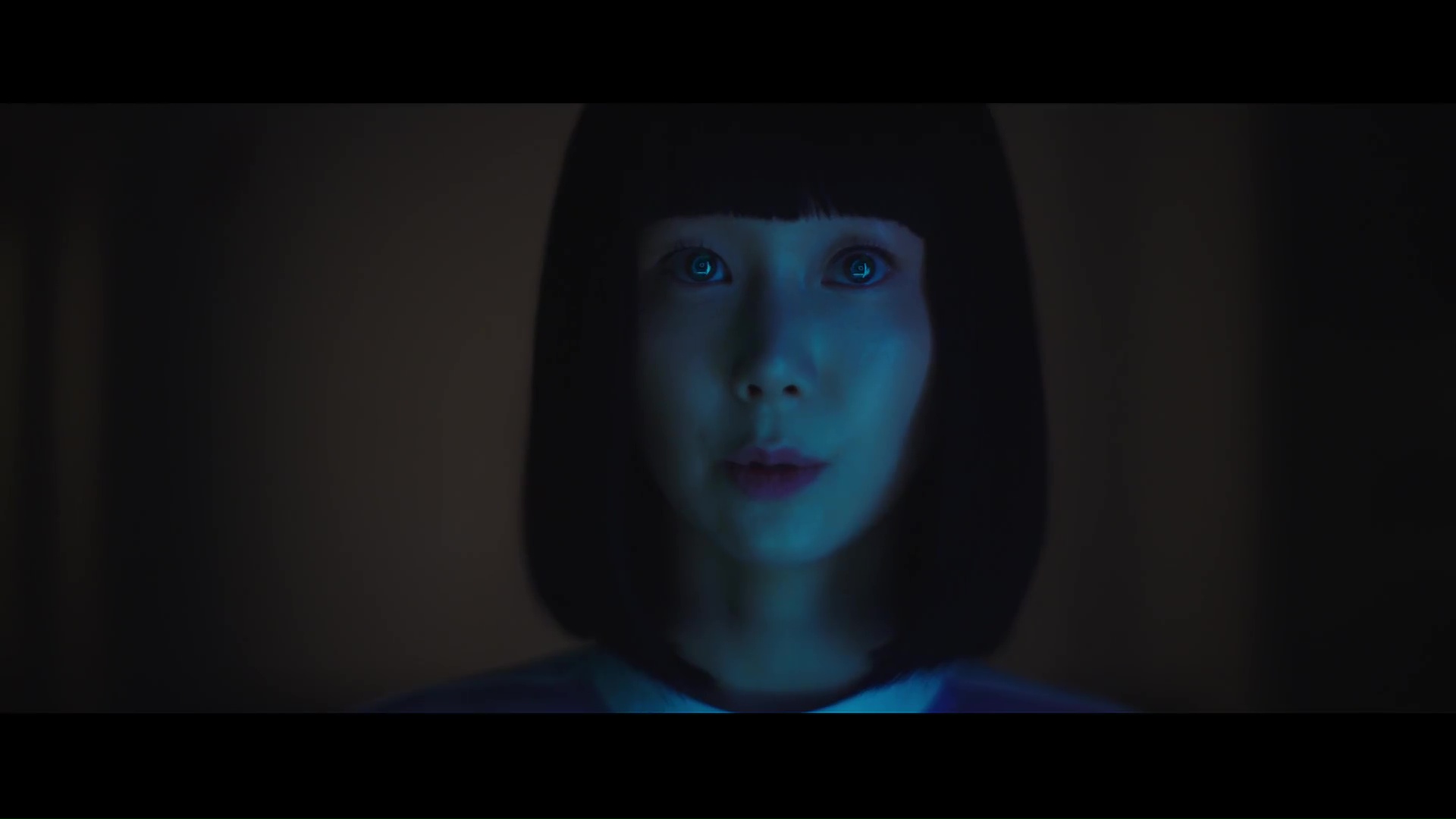
The Prayer carries a lot of themes and elements that we’re used to seeing in sci-fi stories — the dystopic setting where nature is absent and technology has taken over, the important issues that an over-reliance on technology brings up, and also, the idea of an outlier.
Ho-joong is our outlier. She’s the expensive robot model with an important linguistic add-on, but it’s more than that. Ho-joong is incredibly sensitive, perceptive, emotive, and even develops a sense of morals and moral duty. Again and again she monitors Jung-in’s mental health, calculating numbers and using algorithms to assess how high-risk she is. What’s interesting, though, is that there’s more than data behind it — Ho-joong responds with feelings the same way a person would, and very different than a robot with a strict directive should.
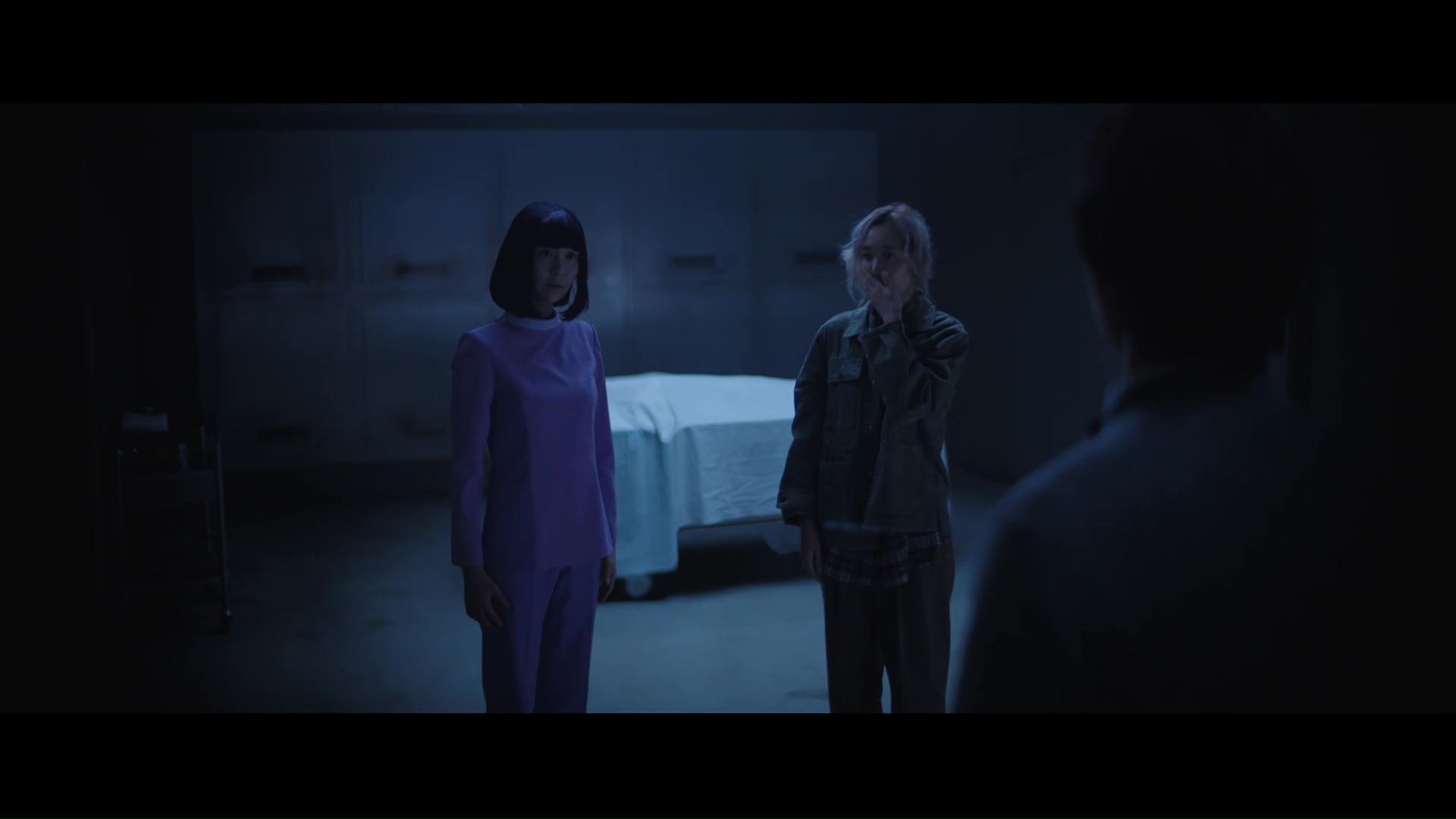
Our robot sees the agony that Jung-in is in, and believes that if her mother were gone, Jung-in would be able to move on. Ho-joong soon gets caught in this dichotomy where she believes that, “One person must die to save the other.” She’s able to weigh the situation rationally, but at first she’s unable to decide whose life matters more: the patient in the coma she has been caring for, or the daughter who’s about to take her own life.
Here, The Prayer digs deeply into its theme, and we meet another important character, the nun SISTER SABINA (Yeh Soo-jung). The drama opened with her reading a verse from the Bible about Cain and Abel (a story about jealousy, anger, and fratricide) — it’s here that the famous “Am I my brother’s keeper?” line comes from. It’s the perfect touchstone for where our drama goes — murder, rage, the agony of guilt, and even the idea of “keeping” or caring for someone. When we meet Sabina again, she’s offering help to the caregivers at the hospital. It’s meant for humans, but Ho-joong calls the number, and has a long conversation with Sabina about her decision: Jung-in’s mother must die.
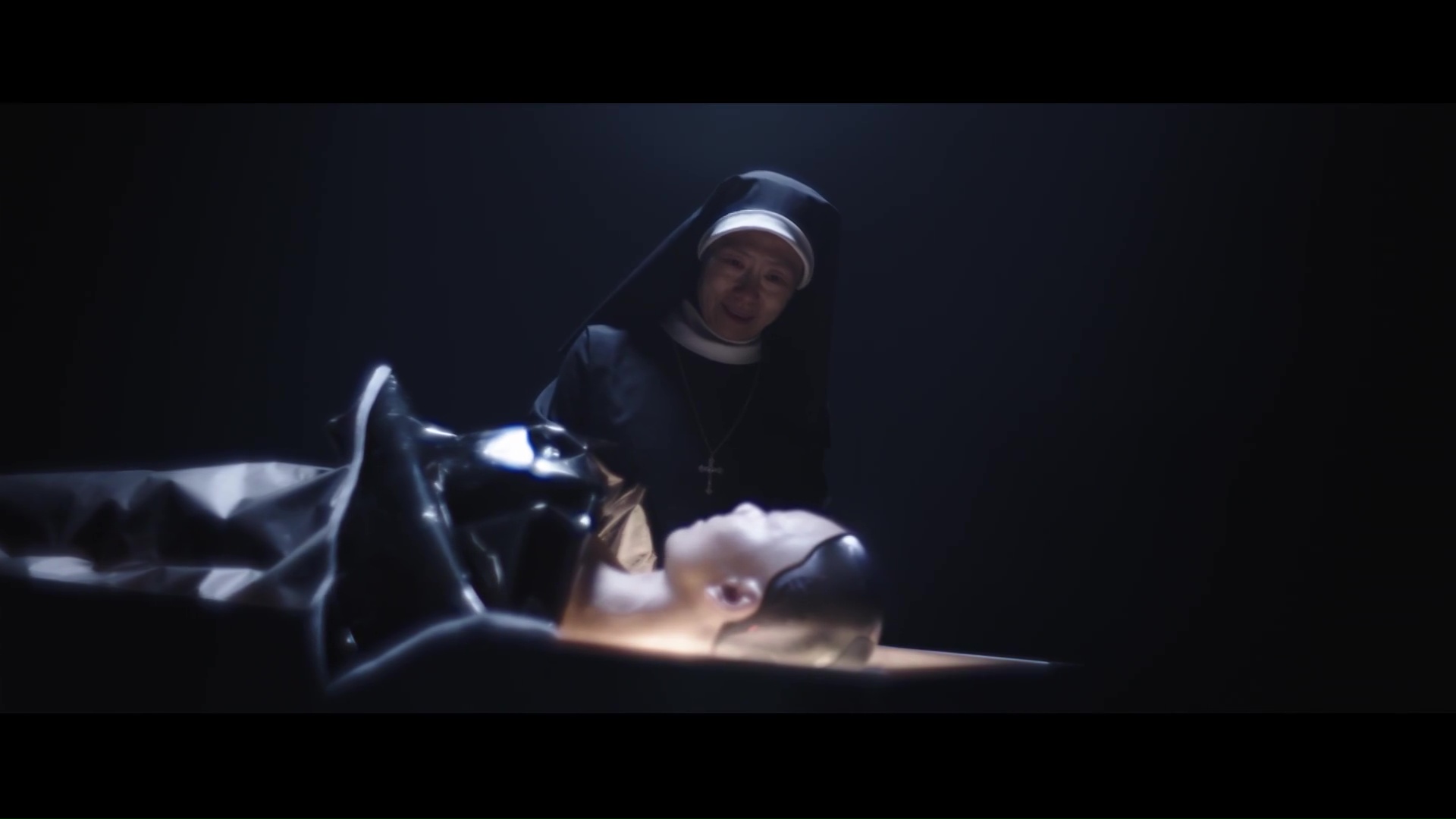
The Prayer is less than an hour long, but packs a heck of a punch. I’ve detailed the set-up that leads to the climax, and by the time we reach that point of the story, it’s clear what the drama is interested in exploring. We not only look at the morality (and consequences) of Ho-joong’s choice, but take a deep, dark look at the real question: who is more humane — the human or the robot? It’s not a question that’s answered as much as it is set up for us, and we’re left to weigh it along with the other themes the drama has explored. More than a story about a robot that becomes sentient and makes a life-altering decision, our drama examines so much more — I could wrap my brain around this for hours.
There’s the strange dynamic of the caregiving robot looking like the human who bought it, and the weird displacement that occurs there; there’s the whole Cain and Abel allegory about the wrong of shedding blood; the question of what it really means to be a caregiver; and the final question that’s posed around whether a robot’s life counts as a “life.”
While there’s no shortage of themes and messages to explore in The Prayer, it’s certainly not only cerebral. It’s as gripping as it is upsetting, but I think that’s what makes the deep and thematic aspect of the drama really work. In this sense it’s quite well-balanced and well-executed. Rather than a drama that you can easily let go of, The Prayer, and all the themes it examines, stays with you long after it’s over.
